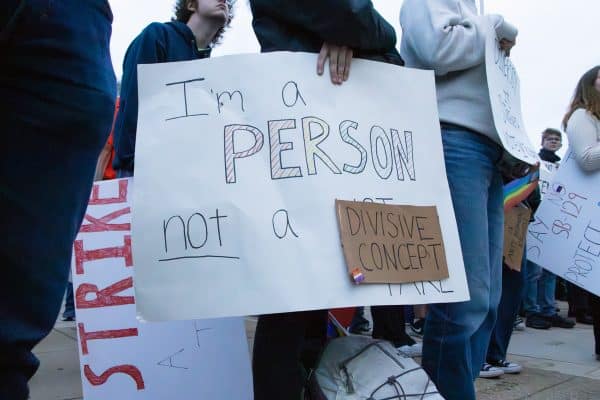Disney movies corrupt the minds of little girls
February 27, 2020
As a little girl, I grew up binge-watching every Disney princess movie, in awe of their beauty and grace. Even to this day, I still remember almost every song from “The Little Mermaid” and “Cinderella.” Not only were these Disney movies a major part of my childhood, but they were also putting false realities in my head. Like most Disney princess movies, the goal is for the princess to eventually find a prince who saves her, takes care of her and sweeps her off her feet. But there are hidden messages within these movies that teach both little girls and boys that sexual consent is inconsequential.
It wasn’t until I reached my 20s that I realized how misleading most of the Disney princess movies actually are. As a young girl, I looked up to my favorite Disney princesses. I would dress up in my “Little Mermaid” costume and dance around my living room, imagining the day my Prince Charming would come and save me. Looking back on those years, I had latched on to the main message that is the focus in all of these movies. This message is one that teaches little girls to be dependent on a man, to aspire for marriage and that their fairytale life will begin once they are found by that special man.
My purpose is not to bash Disney, but to open the minds of society to the damage these movies create. From “Beauty and the Beast” to “Sleeping Beauty,” little girls are exposed to misconceptions of love. In “Sleeping Beauty,” the princess is asleep for a hundred years until the day a handsome prince saves her by kissing her lips and waking her up. They then live happily ever after. This movie promotes a dangerous message to both little girls and boys regarding sexual consent. While a kiss on the lips may not seem like a pressing concern, little boys grow up believing it is acceptable to kiss a female without her permission.
Even in “The Little Mermaid,” the popular song “Kiss the Girl” teaches little boys that it’s acceptable to kiss a girl even if she doesn’t consent to the act. For instance, the lyrics read, “It don’t take a word, not a single word, go on and kiss the girl.” These lyrics corrupt the minds of little girls into believing a man has a right over their body even when consent isn’t given. When little boys are exposed to this movie, they watch a man kiss a girl without asking and grow up thinking this is normalcy.
The author Hanne Blank dives into the messages that are portrayed in Disney princess movies in her book “Straight.” In discussing “Snow White and the Seven Dwarfs,” Blank argues that the movie “taught its 1937 audiences that if a pure-hearted young woman fervently believed ‘Someday My Prince Will Come,’ he inevitably would.” This movie, like most princess movies, misrepresents love as a fairytale.
For years, I would scratch my head in frustration that I had yet to find my Prince Charming. I questioned why I couldn’t live the fairytale life that I grew up aspiring to, as this was the only idea I had of love. Due to exposure to these Disney princess movies, I was under the impression that my life couldn’t begin until I was saved by a man. Luckily, I discovered that these movies were unrealistic, as they showcase fallacious conceptions females should desire: a man and marriage.
It is imperative that we teach young boys and girls that Disney princess movies falsely portray love and gender roles. We must teach little girls to be independent, to not depend on a man, to realize that the Prince Charming concept isn’t realistic and that their purpose in life isn’t solely restrained to marriage. It’s vital to educate both boys and girls about consent so that when they grow up, they have the proper knowledge on how to protect themselves. Disney is brainwashing the minds of the innocent by creating a false perception of love, consent and gender roles, and as a society, we must begin to acknowledge this.











